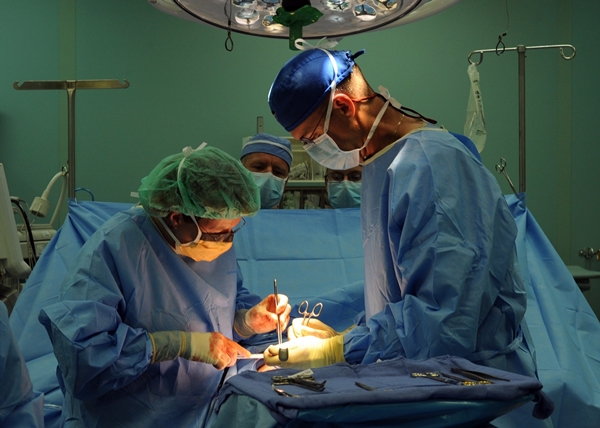27 June 2016. Department of Defense is funding research on new drugs that aim to improve the quality of tissue and limbs for transplants donated from people whose brains stop working. DoD awarded the grant of nearly $1 million to the Institute for Transformative Molecular Medicine at Case Western Reserve University School of Medicine in Cleveland.
The Case Western Reserve team led by James Reynolds, professor of anesthesiology and surgery, aims to develop a new class of drugs designed to reverse damage to tissue caused when brain death occurs, which interrupts the flow of proteins known as S-nitrosothiols to the body. S-nitrosothiols, or SNOs, control oxygen delivery, blood flow, and cell activity. Without these proteins, tissue or entire limbs that may otherwise be suitable for transplants from consenting donors into wounded or injured service members or civilians, become too damaged.
“Brain death can disturb SNO functioning,” says Reynolds in a university statement, “which we believe is a major contributor to procurement rates of suitable organs as low as twenty percent from consented donors.” Reynolds adds, “Clearly, better methods are needed to support the donor after brain death, and we will be exploring one such option under this grant.”
In earlier research, Case Western Reserve colleague Jonathan Stamler, director of Institute for Transformative Molecular Medicine, found that damage in animals from SNO deficiency can be reversed, reducing tissue damage. Under the new grant, Reynolds, Stamler, and colleagues will study a type of enzyme identified in these earlier studies that regulates SNO protein functions. In further tests with animals, the Case Western Reserve team will see if these enzymes can improve tissue quality in transplant recipients.
The researcher will look particularly at reversing SNO deficiency in a type of transplant surgery known as vascular composite allotransplantation that transplants an entire section of a limb, including skin and bone as well as muscle, nerves, and blood vessels to correct loss of multiple tissue types from traumatic injuries. Vascular composite allotransplantation is being increasingly used for complex reconstructions of limbs, as well as abdominal and serious facial injuries.
In addition to tests with animals, the team will also study detection of SNO deficiency in human donors. This part of the study will take blood tests and muscle biopsies, and monitor blood flow and oxygen uptake in human donors. “If our supposition holds true,” says Reynolds, “we will find that muscle and tissue in human donors, not just animals, are also harmed by deficiencies in SNOs.”
Based on the findings from the project, the Case Western Reserve researchers believe they can then move ahead on clinical trials of their drug with vascular composite allotransplantation surgery, which they believe can be extended to transplants of kidneys, hearts, and lungs.
Read more:
- Start-Up Developing Nanomedicines for Transplants
- Engineered Facial Bone Grown from Stem Cells
- Patent Awarded for Skin Stem Cell Regeneration Methods
- FDA Approves Trial Testing Stem Cells for Brain Injuries
- MIT Spin-Off Develops Material Mimicking Human Skin
* * *


 RSS - Posts
RSS - Posts
Research teams are invited to submit letters of interest for research on piloting innovative approaches for safety monitoring in the context of preventive chemotherapy and mass drug administration implemented for the control of neglected tropical diseases.